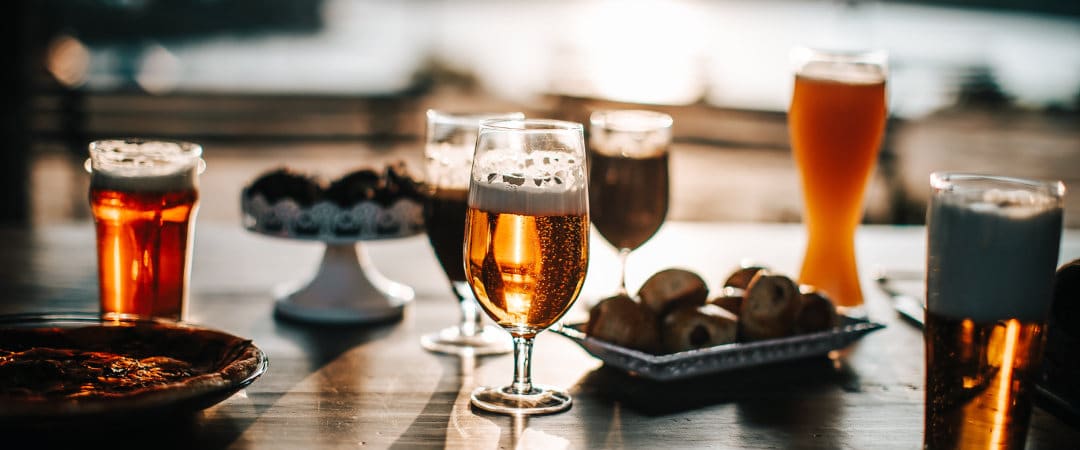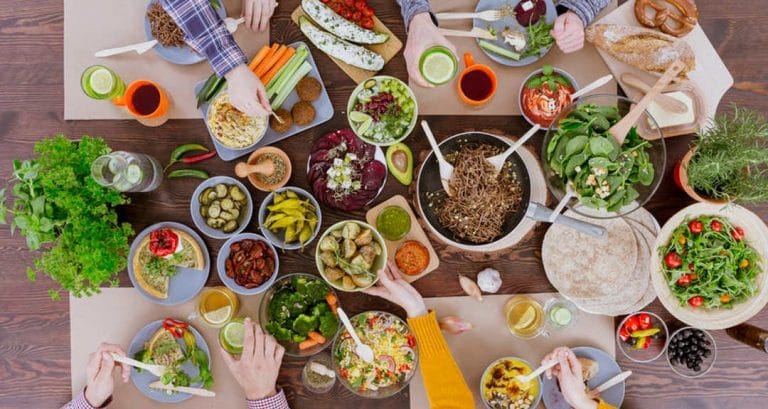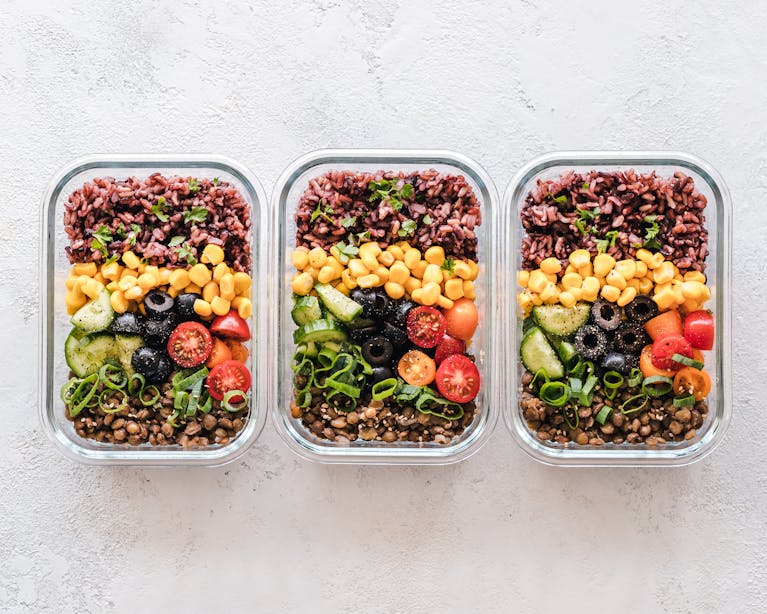Does Wine Make You Fat? A Guide to Alcohol and Weight Loss
Many sites and fitness gurus suggest cutting alcohol if you want to lose weight, but is it actually the alcohol that leads to weight gain? If so, why do some experts recommend 1-2 glasses of red wine per day? Here we explain the relationship between alcohol and weight loss, and answer the all-important question: does wine make you fat?
Alcohol Metabolism Explained
Like most other foods and drinks, alcohol has calories. More exactly, alcohol has 7 calories per gram. This is more calories per gram than carbs and proteins, but less that fat. Unfortunately, unlike the other three types of calories, alcohol does not provide any nutritional benefit for the consumer.
Similar to carbohydrates, a moderate amount of alcohol can be processed efficiently and does not turn directly into fat. However, when consumed in excess, fat breakdown slows and extra alcohol calories are stored as fat.
Alcohol also:
- Dilates blood vessels, which makes you feel warmer
- Interferes with calcium absorption, which can lead to muscle cramps
- Acts as a diuretic, which can lead to dehydration

Alcohol and Weight Loss
Alcohol is an integral part of many people’s social lives, but is it something you need to give up if you’re hoping to shed a few pounds? The short answer is: not necessarily, but it depends on your drinking habits.
If you have a glass of red wine every once in a while and stop there, then alcohol probably won’t get in the way of your weight loss. However, if you find yourself downing a 6-pack on the couch every other night and still craving more, cutting-down on (or completely abstaining from) alcohol may prove key to your weight loss success.
Alcohol consumption – especially in excess – alters metabolism, decreases absorption of nutrients, increases intake, diminishes sleep quality and negatively affects lifestyle. When combined, these unwanted effects can hamper weight loss. In fact, men who binge drink at least once a week are significantly more likely be overweight than their sober counterparts.
That being said, a number of studies have shown that low-to-moderate alcohol intake is actually beneficial for weight and health. Moderate intake is one per day for women, or two drinks per day for men. Drinking 1-2 glasses of red wine each night may prove especially beneficial for weight loss thanks to the drink’s powerful antioxidant properties.
So, if you’re debating whether or not to give-up alcohol for health reasons, here are some important points to consider about alcohol and weight loss:
🍹 Alcohol Slows Your Metabolism
Less than 5% of calories from alcohol are stored as fat, so why does drinking seem to correlate so heavily with weight gain? Most of the blame lies on this substances’ tendency to decrease fat burn.
When your body has its choice of carbs, fat or protein to use as energy, it draws on them in that order. However, if you add alcohol to the mix the body uses ethanol first. As result, when you drink your body is less likely to burn fat for energy, which makes it harder for you to get rid of stubborn belly fat. More, 70-80% of alcohol is converted to acetate when it is processed in the liver. Acetate is thought to further slow fat breakdown (lipolysis) when it enters the bloodsteam, so that this alcohol byproduct may make it even harder to lose weight.
Interestingly, one animal study showed that ethanol actually speeds-up fat breakdown. This may explain why moderate alcohol consumption is not associated with an increased risk of obesity, despite the extra calories.
🍸 Alcohol is Empty Calories
Alcohol has almost twice as many calories per gram as carbs and protein. Worse, the calories do not provide any nutritional value, so they are what experts call “empty calories”. Here are the alcohol calories of some popular drinks:
- 1 shot of liquor (vodka, gin, rum, tequila) = 96 calories
- 1 glass of wine (5oz) = 120 calories
- 1 can of beer = 150 calories
Wine and beer have more calories than straight liquor because they contain carbs in addition to the ethanol. Cocktails are often much more caloric due to the high sugar, carb and even fat content of mixers. A small (4.5oz) piña colada, for example, has almost 250 calories.
🥃 Alcohol Leads to Higher Caloric Intake
In addition to the calories contained in the drinks themselves, drinking also lowers inhibitions, which can make you eat more. In fact, one study showed that subjects ate 11% more and had noticeably more cravings for sweet and salty foods after just two drinks. Another study showed that, in addition to eating more, women’s brains are also more responsive to enticing food aromas after drinking.
If you tend to drink with meals or grab midnight snacks with friends after a night out, reducing alcohol consumption may make it easier to practice portion control and skip unnecessary snacks.
🍻 Alcohol Decreases Sleep Quality
One in five American adults say they sip on a nightcap to help lull themselves to sleep. However, while having a drink may help you relax and fall asleep faster, alcohol actually decreases sleep quality.
Alcohol inhibits REM sleep – the restorative part of the sleep cycle – which is why you often wake-up feeling groggy the morning after. Experts also suspect that drinking impacts your body’s regulation of a natural sleep-wake cycle. This is why you often wake-up earlier than you want the morning after a night out.
Good sleep is critical to weight loss because it helps regulate satiety and stress hormones. So, getting too little sleep, or poor-quality sleep, because of alcohol can be a major barrier to successful weight loss.
🍷 Alcohol Has a Ripple Effect
Finally, alcohol often has an unhealthy ripple effect. How many times have you signed-up for a Saturday morning workout class, but then had a few too many on Friday night and ended-up skipping the class? Or gone to happy hour instead of the gym after work? Regular drinking often gets in the way of healthy habits, even if you’re just a casual drinker.

So… Does Wine Make You Fat?
No, wine will not make you fat unless you consume it in excess. So, if you choose to drink, do so in moderation.
Aim for no more than one, standard-sized drink per day, and be conscientious of how that indulgence affects your attitude towards other healthy habits, such as portion control and daily physical activity. While one glass of wine (about 120 calories) won’t have much effect on weight, four glasses of wine and a cheese plate at happy hour 2-3 times per week definitely will.
What do you think: are alcohol and weight loss a feasible combo? Whether you’ve gone sober or kept drinking during your weight loss journey, we’d love to hear from you! Please share your story in the comments section below.







What about beer?
Hi Jake! The average beer contains anywhere from about 150-170 calories (light beers) to about 210-220 calories (stouts, sweet ciders). These calories come from both carbohydrates (from the grains used to make beer) and ethanol (alcohol). So, beer is generally more caloric that wine, but neither will lead to significant weight gain if you drink in moderation. The problem is that most of us don’t only drink one beer or one glass of wine… and just 2 beers has as many calories as a Big Mac burger.
Hope that helps, and thanks for reading!
Rachel, HTLW team
So should I order wine at the bar, or is there a better drink for weight loss?
Hey there, Georgia 🙂 Spirits are the lowest-calorie option, so ordering a vodka soda (NOT tonic!) is a good choice at under 100 calories per drink. If you don’t like vodka, consider rum/whiskey & diet coke or a shot of tequila. Still, remember that even 100-calorie drinks can add up quickly if you’re drinking all night, so try alternating alcoholic drinks with water or diet soda to space them out.
Best wishes!
Rachel, HTLW team
So, yes, it does make you fat 🙁 Man
Like most other things in excess 🙂
Zack, HTLW team
No idea.
Hey, to each their own! I like o drink a couple of glasses a day and I’m a healthy weight both for my age and height.